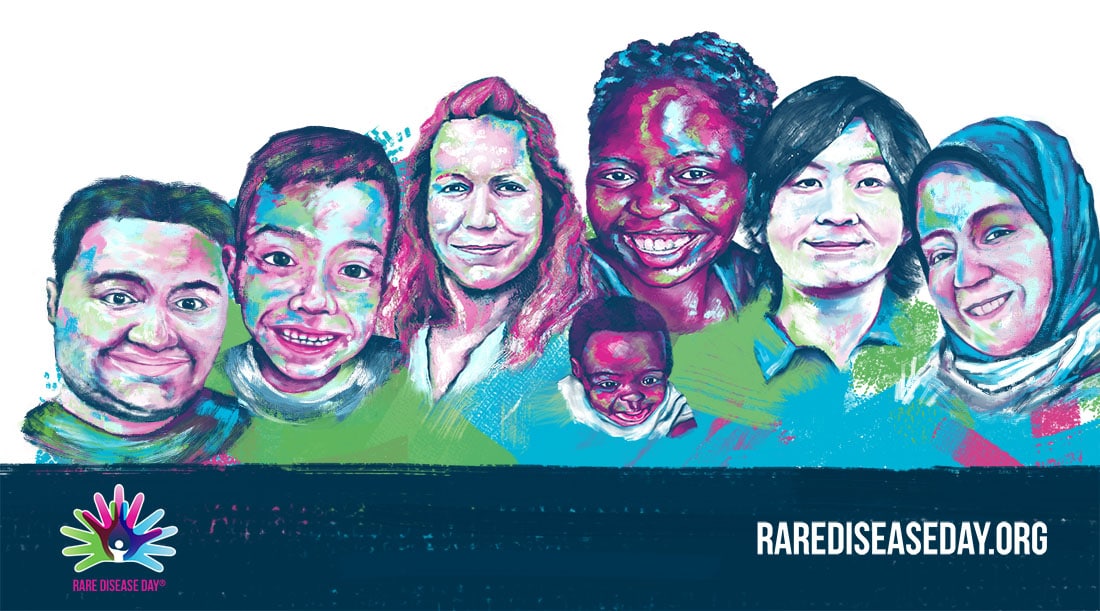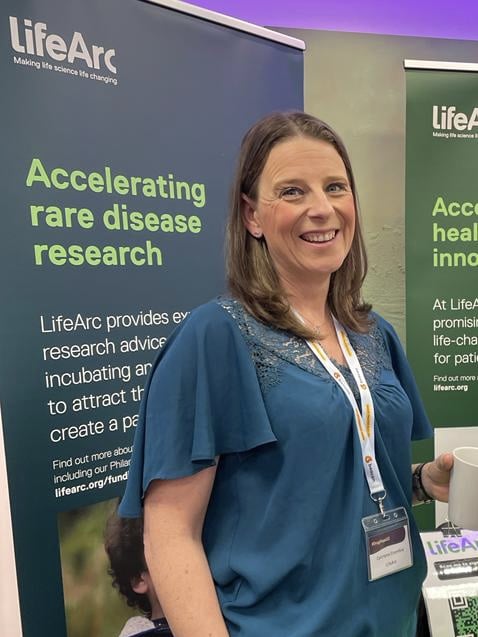There are more than 7,000 rare diseases. A rare disease is defined as one that affects less than 1 in 2,000 of the population and most are caused by a faulty gene.
Although a single rare disease will affect only a small number of people, when added up these diseases affect many people. One in 17 people will be affected by a rare disease at some point in their lives – as a child, or when they are an adult. That’s 3.5 million people in the UK.
Rare diseases can have a devastating impact on the lives of patients and their families. People will often experience delays in receiving a diagnosis – and there are no effective treatments available for many rare diseases. Sadly, many conditions are often lifelong, progressive and many will cut lives tragically short. For Rare Disease Day this year, we are sharing more stories about the work we fund with others into different rare diseases. We act as a trusted, strategic partner to academics, medical charities and patient groups to transform the way rare diseases are identified, treated and, where possible, prevented, to benefit the lives of patients. We’ve shone a spotlight on our work in primary sclerosing cholangitis (PSC), a rare liver disease which affects around 3,600 people in the UK. People can develop the condition at any age, but most commonly People can develop the condition at any age, but most commonly people develop it before they reach 40. The only way to treat PSC currently is by having a liver transplant, and PSC accounts for around a tenth of all liver transplants in the UK. It is now the main reason why people have liver transplants in several European countries.
We are jointly funding research with the charity Action Medical Research into Hunter Syndrome, a genetic disease that almost exclusively affects boys. Depending on its severity, children with Hunter syndrome can experience a wide range of symptoms affecting many tissues and organs, including their brain, liver, lungs, bones, eyes, skin and heart. We’re funding research at the University of Edinburgh to understand more about late-onset retinal degeneration (L-ORD), which is a rare inherited eye disease that leads to blindness in older people. With L-ORD, the specialised light-sensing cells at the back of patients’ eyes stop working and eventually die, causing sight loss. Sadly, there are currently no treatments to prevent this happening.
Find out more about how we support rare disease research and help to offer hope to people affected by these rare conditions.




